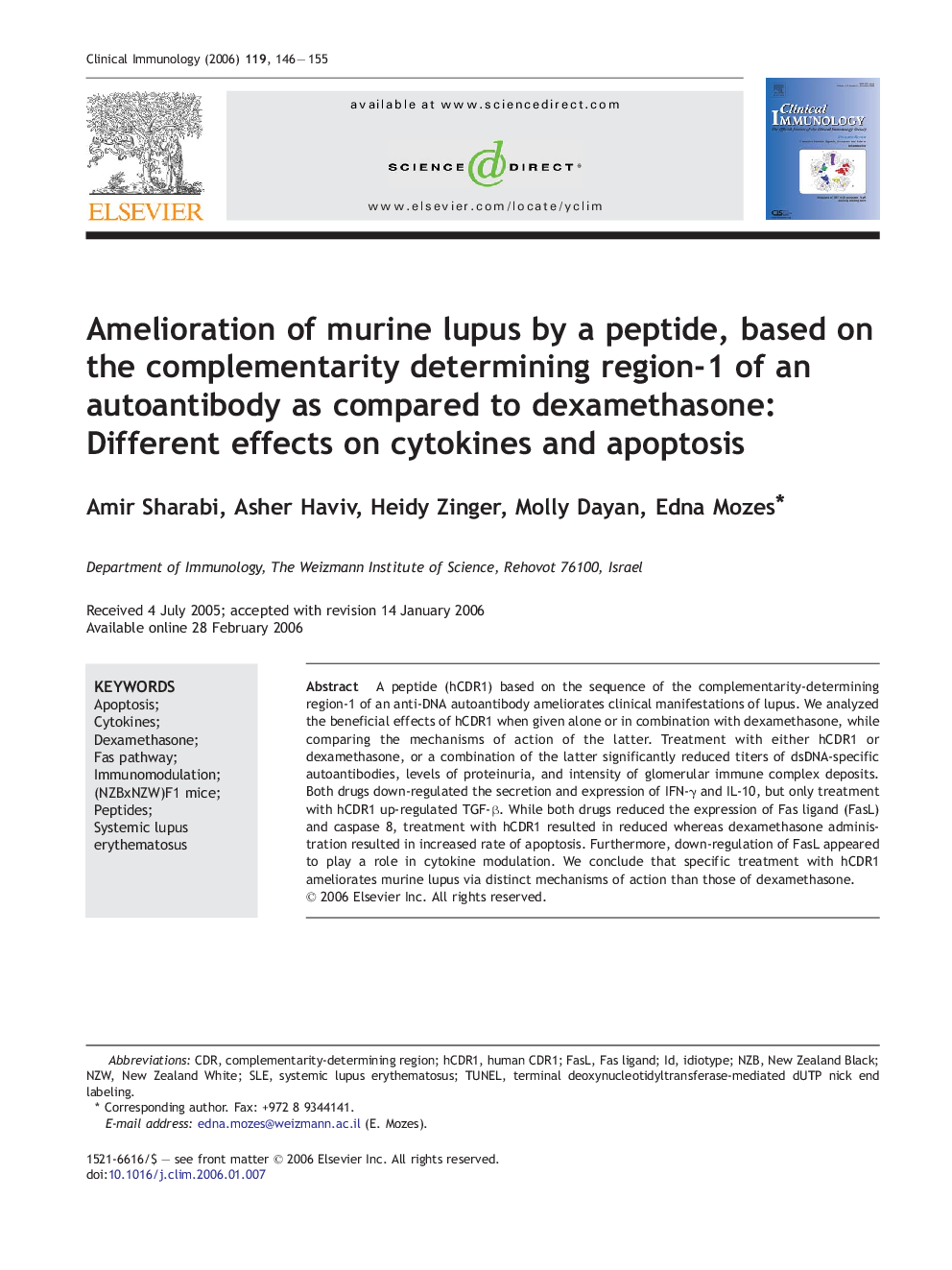| Article ID | Journal | Published Year | Pages | File Type |
|---|---|---|---|---|
| 3258764 | Clinical Immunology | 2006 | 10 Pages |
A peptide (hCDR1) based on the sequence of the complementarity-determining region-1 of an anti-DNA autoantibody ameliorates clinical manifestations of lupus. We analyzed the beneficial effects of hCDR1 when given alone or in combination with dexamethasone, while comparing the mechanisms of action of the latter. Treatment with either hCDR1 or dexamethasone, or a combination of the latter significantly reduced titers of dsDNA-specific autoantibodies, levels of proteinuria, and intensity of glomerular immune complex deposits. Both drugs down-regulated the secretion and expression of IFN-γ and IL-10, but only treatment with hCDR1 up-regulated TGF-β. While both drugs reduced the expression of Fas ligand (FasL) and caspase 8, treatment with hCDR1 resulted in reduced whereas dexamethasone administration resulted in increased rate of apoptosis. Furthermore, down-regulation of FasL appeared to play a role in cytokine modulation. We conclude that specific treatment with hCDR1 ameliorates murine lupus via distinct mechanisms of action than those of dexamethasone.
